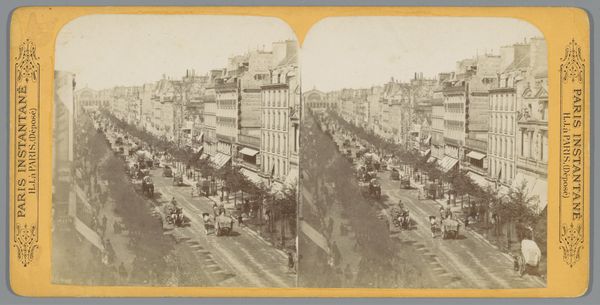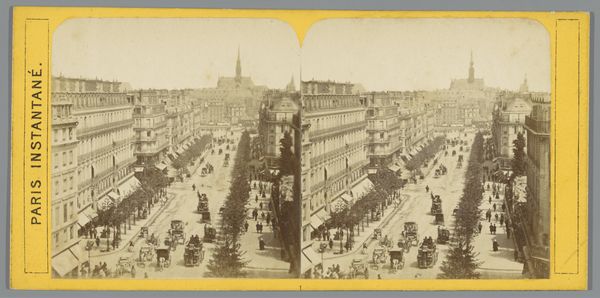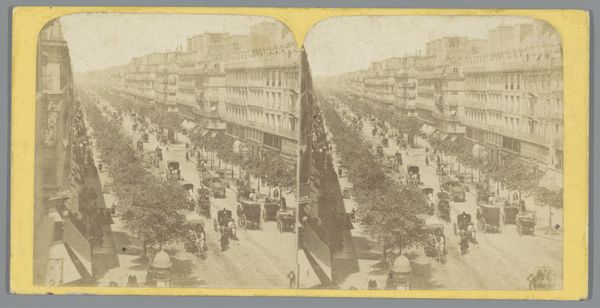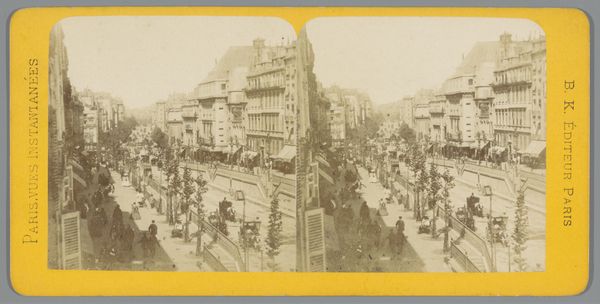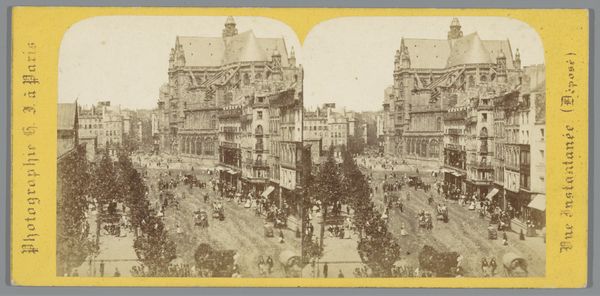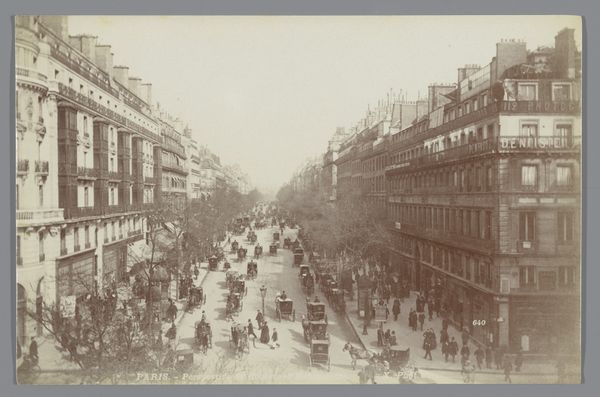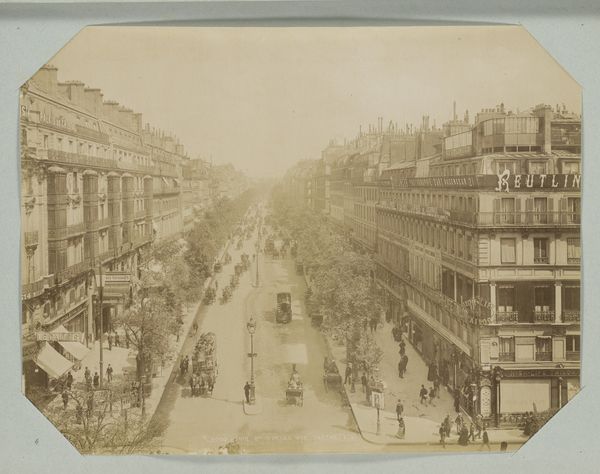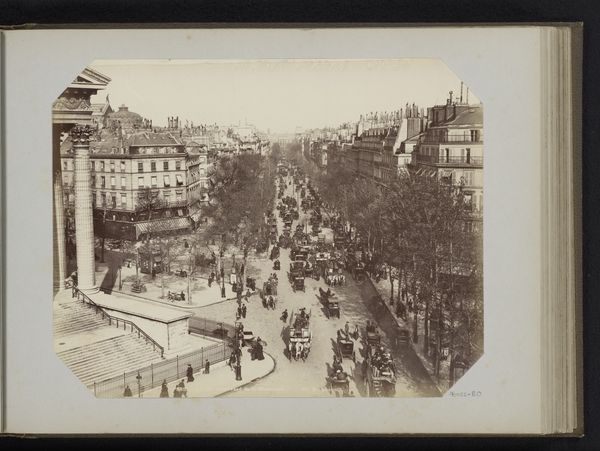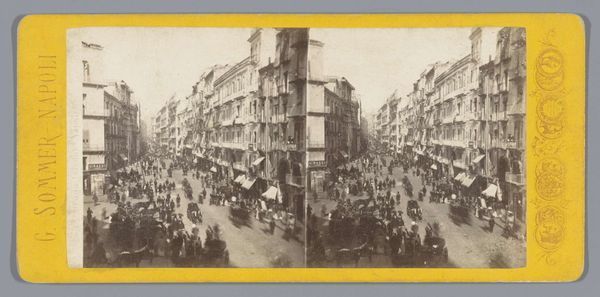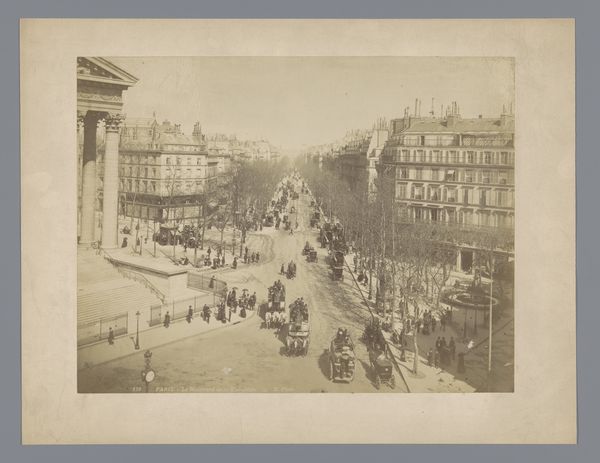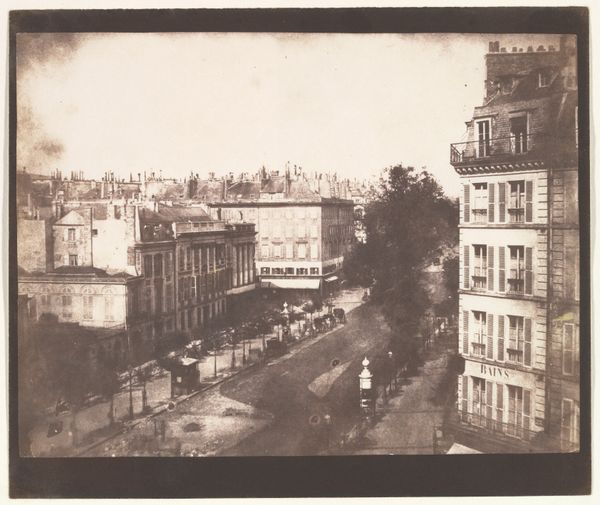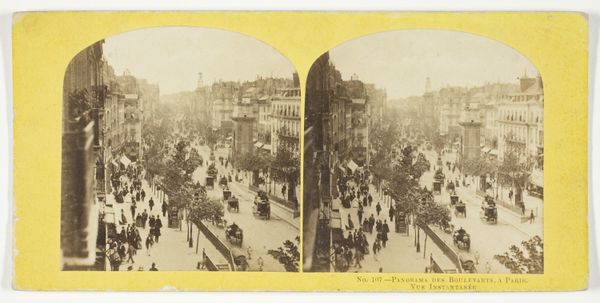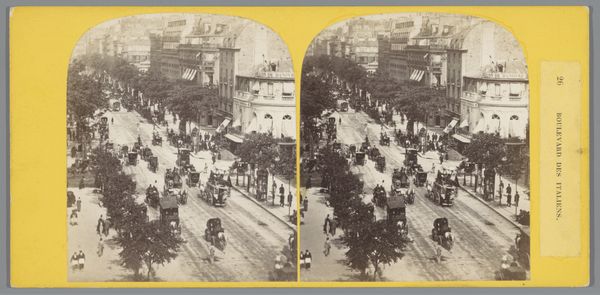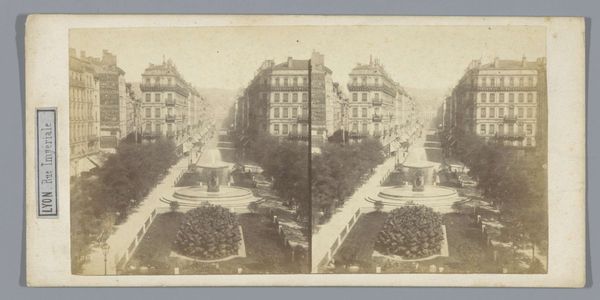
photography, gelatin-silver-print
#
16_19th-century
#
charcoal drawing
#
photography
#
coloured pencil
#
gelatin-silver-print
#
cityscape
#
street
#
watercolor
#
realism
Dimensions: height 85 mm, width 175 mm
Copyright: Rijks Museum: Open Domain
Editor: This photograph, "Gezicht op de Boulevard des Italiens in Parijs," dates from before 1860 and is a gelatin-silver print. What strikes me is the implied motion within this seemingly still cityscape, a buzz even in its monochrome stillness. How do you interpret that feeling? Curator: The bustling boulevard indeed carries a weighty cultural symbolism. Streets have long been viewed as liminal spaces - corridors connecting disparate parts of a city. More importantly, it illustrates progress, this snapshot is of a time in Paris that marks a societal shift in mobility, class, and accessibility. How does the stereoscopic presentation impact your interpretation? Editor: Good point! Because of its stereoscopic presentation, you see slightly different perspectives. I hadn’t thought about the effect of that… making it feel less static. What did the boulevard symbolize back then? Curator: It quickly came to symbolize modern urban life, a space for commerce, leisure, and public display. Take note of how clothing, carriages, and social interactions shown reinforce social status, and think about its implications. Does this detail make a difference in understanding cultural meanings? Editor: It does. I now understand it speaks about accessibility and how things are evolving regarding transport. I like seeing these new ways of expressing art to represent modern urban life. Curator: The dynamism of modern life is wonderfully captured here, isn’t it? Considering cultural memory is seeing how symbolic representation mirrors life during Paris' rapid transformation, we appreciate this change's continuous reverberations. Editor: Yes, definitely. The symbols woven within create a tangible narrative I found especially exciting.
Comments
No comments
Be the first to comment and join the conversation on the ultimate creative platform.
